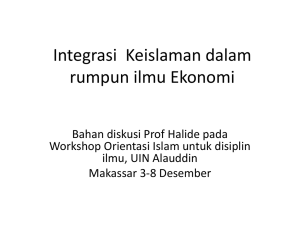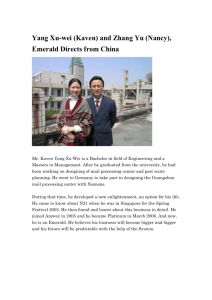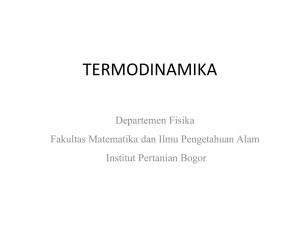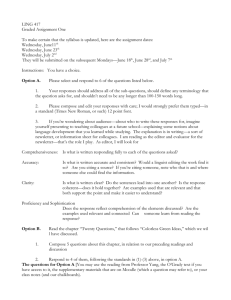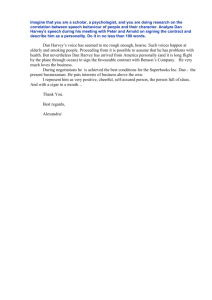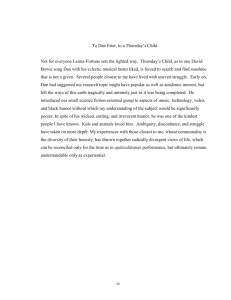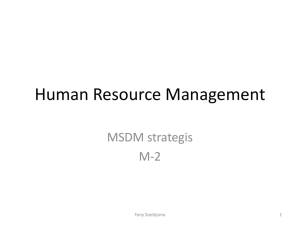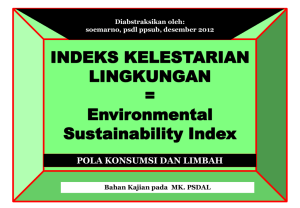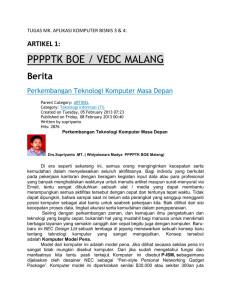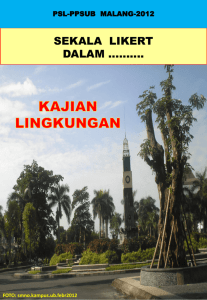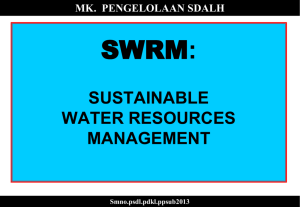Keteraturan di alam
advertisement
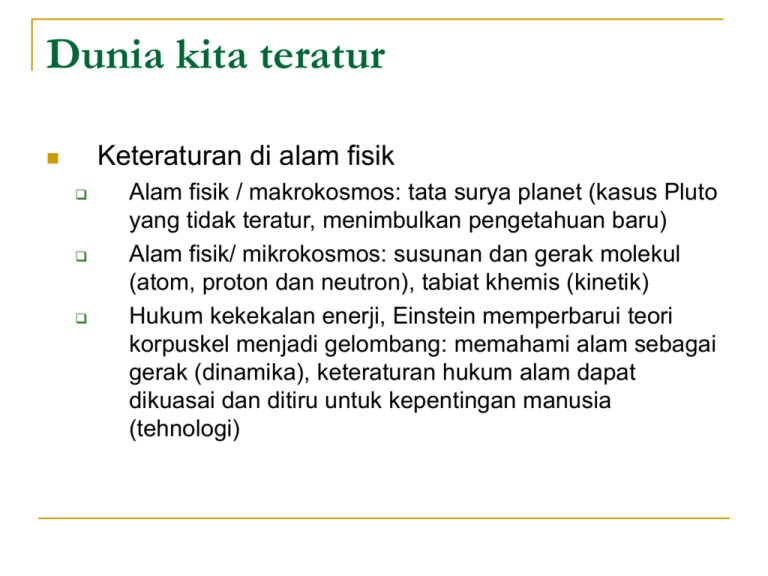
Dunia kita teratur Keteraturan di alam fisik Alam fisik / makrokosmos: tata surya planet (kasus Pluto yang tidak teratur, menimbulkan pengetahuan baru) Alam fisik/ mikrokosmos: susunan dan gerak molekul (atom, proton dan neutron), tabiat khemis (kinetik) Hukum kekekalan enerji, Einstein memperbarui teori korpuskel menjadi gelombang: memahami alam sebagai gerak (dinamika), keteraturan hukum alam dapat dikuasai dan ditiru untuk kepentingan manusia (tehnologi) Universe galaxy Universe Andromeda Galaxy Universe Bumi dan Matahari Jupiter Mars Saturnus Pluto Not a Planet, Astronomers Rule Meteor di permukaan Mars Meteor Permukaan planet terkena meteor Susunan atom Susunan atom Reaksi Atom Bom Atom Dunia kita teratur Keteraturan di alam vegetair - Terjadinya kehidupan Perilaku tanaman digerakkan oleh Reaksi terhadap cahaya dan air / unsur fisis Reaksi terhadap makanan / unsur khemis Asal-usul Kehidupan Dunia kita teratur Behaviour / perilaku binatang ditentukan oleh Rangsangan dari luar, yang menggerakkan naluri (software explanation) Rangsangan dari luar, yang menggerakkan respon motorik – sistem syaraf (hardware explanation) Ada sistem komunikasi signal dari antara mereka Melalui gerak fisikal Melalui bunyi Dunia kita teratur Keteraturan di alam rohani (manusia) Evolusi manusia Keteraturan perilaku sosial (customs); dari mekanis ke organisatoris Keteraturan moral (individual) yang digerakkan oleh nilai-nilai dari egois hingga transenden / religius So Close, Yet So Different Photograph by Cary Wolinsky Chimpanzees are our closest living relatives, sharing approximately 96 percent of our DNA sequences. Looking into the face of a chimpan-zee, however, it's not hard to see the difference that 4 percent and millions of years can make. The chimpanzee-human lineages are believed to have split some seven million years ago. In that time, many species of hominins have come and gone, ultimately leading to the evolution of Homo sapiens. Our species is equipped with a suite of characteristics—flatter faces, bigger brains, straighter spines, and highly specialized hands and feet—all consequences of the drive to walk upright. All Shapes and Sizes Photograph by Cary Wolinsky The first evidence for an external, projecting nose is seen in fossils of Homo erectus, the species of humans that lived from nearly two million years ago until at least 500,000 years ago. Prior to Homo erectus, hominins had more prognathic (projecting) faces and flatter noses. Although many a modern human nose can be described as a schnoz, there is great variety in their sizes and shapes. Homo neanderthalensis as a rule had an even more pronounced nose and prognathic mid-face, which was probably a function of adapting to colder climates. A larger nasal cavity allowed for greater warming and humidifying of cold air before it reached the lungs. Handmade Photograph by Cary Wolinsky A string game called cat's cradle demonstrates the dexterity of the human hand. Uniquely capable of precision and power grips, the Homo sapiens hand may have developed in response to toolmaking, an ability that allowed humans more access to meat. Meat may have helped us grow bigger brains. But there's a downside to dexterity. A shallow tunnel in the carpal (wrist) bones allows modern humans to have more mobility in the palm and thumb, but it also leaves less room for nerves, muscles, and ligaments to pass through. The resulting pressure on the Footnotes Photograph by Cary Wolinsky "The human foot is a masterpiece of engineering and a work of art," said Leonardo da Vinci. Known for his detailed studies and sketches of the human body, he saw intricacies in the human foot that are still being studied and understood today, some 500 years later. Because of our feet we can propel ourselves in different ways— walking, running, dancing. But the foot also serves a more mundane purpose. "It has evolved to support the significant body weight that rests on it," says Alan Mann, a professor of anthropology at Princeton University. Weight-bearing exercises can help increase bone density, making our feet healthier and more capable of carrying us as we go about our daily activities. Faham determinisme moral Asumsi : Manusia sama dengan makhluk lain, perbedaannya tidak signifikan Penjelasan : Dorongan moral mirip dengan hukum alam (kinetik, instinktif), yang kemampuannya ditentukan secara kodrati / alami dan geraknya lebih ditentukan dari luar (stimuli) Prospek : Manusia bisa diatur secara tehnis, untuk menghasilkan masyarakat yang ‘baik’ (Th. Hobbes, F. Skinner) dalam hal ini moral sama dengan rekayasa sosial, yang menghasilkan adat (custom) dan hukum. Faham ini mendasari faham positivisme hukum. Implikasi politik: diktatorial Perbandingan foetus manusia dan makhluk lain Faham kebebebasan moral (Religius) Asumsi : Manusia makhluk rohani; ada perloncatan dalam evolusi (seperti munculnya kehidupan) Penjelasan : dorongan moral ditentukan oleh (kesadaran) hatinurani yang digerakkan oleh kehendak dan kebebasan serta (apresiasi) nilainilai rohani yang terbuka (Transendensi). Prospek : Keteraturan hidup (sosial) manusia merupakan seni / kemahiran berkomunikasi, melalui wicara dan wacana yang rasional serta pertimbangan nilai-nilai rohani (cinta kasih). Faham Moral Radikal (Nihilis) Mencari keunggulan manusia – moral melampaui kategori normatif ‘baik’ dan ‘buruk’; perjuangan individu menjadi ‘superman’, mengatasi kecenderungan kawanan (F. Nietzsche) Eksistensialisme – kebebasan mutlak (J.P. Sartre), moral merupakan tanggung jawab individu semata; sesama adalah neraka; Yang mau ditekankan: keberanian menjalani hidup secara otentik dan mandiri Prospek : Kehidupan yang orisinal, yang asli, yang bermutu / unggul Selamat Merenungkan
